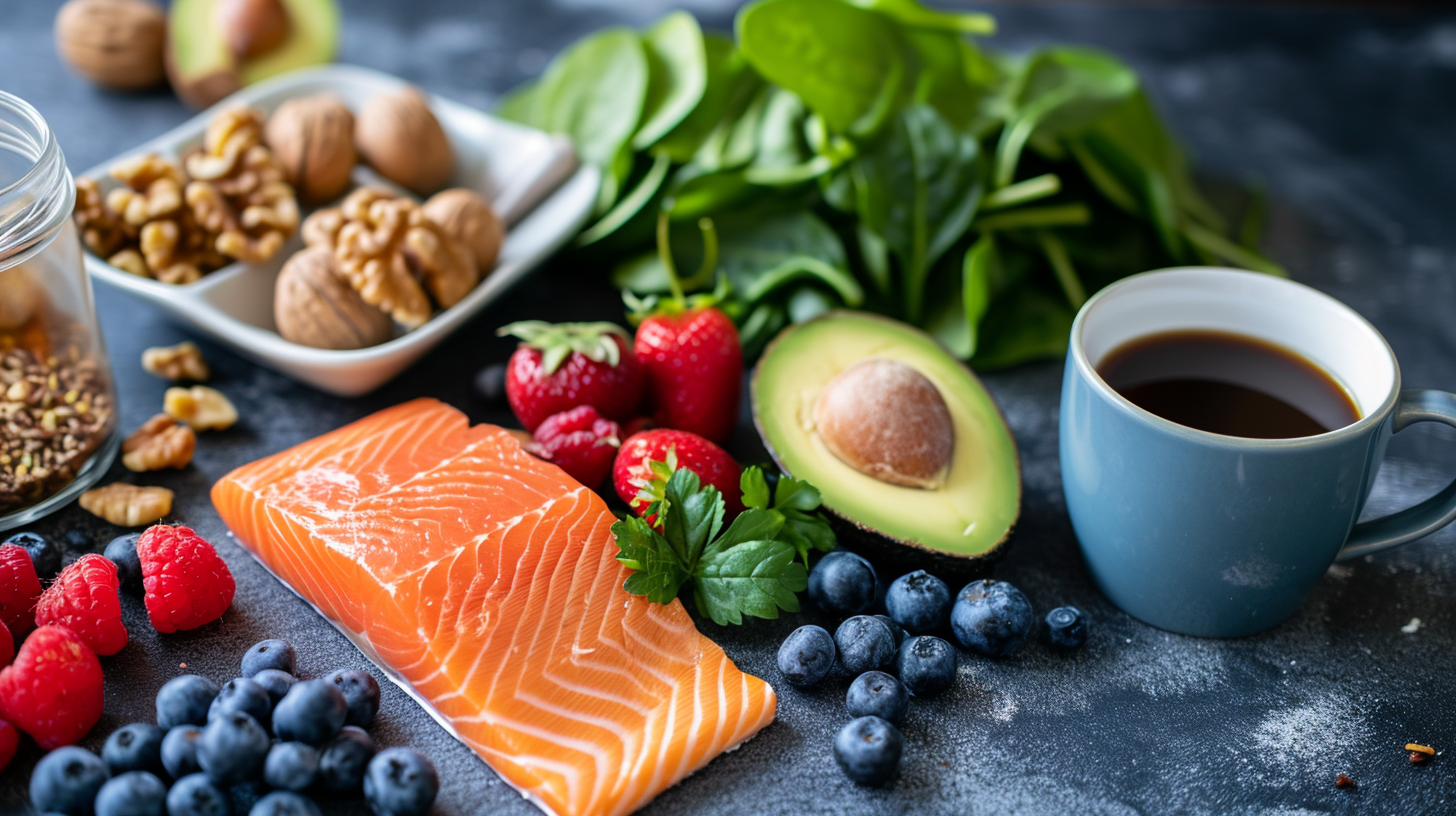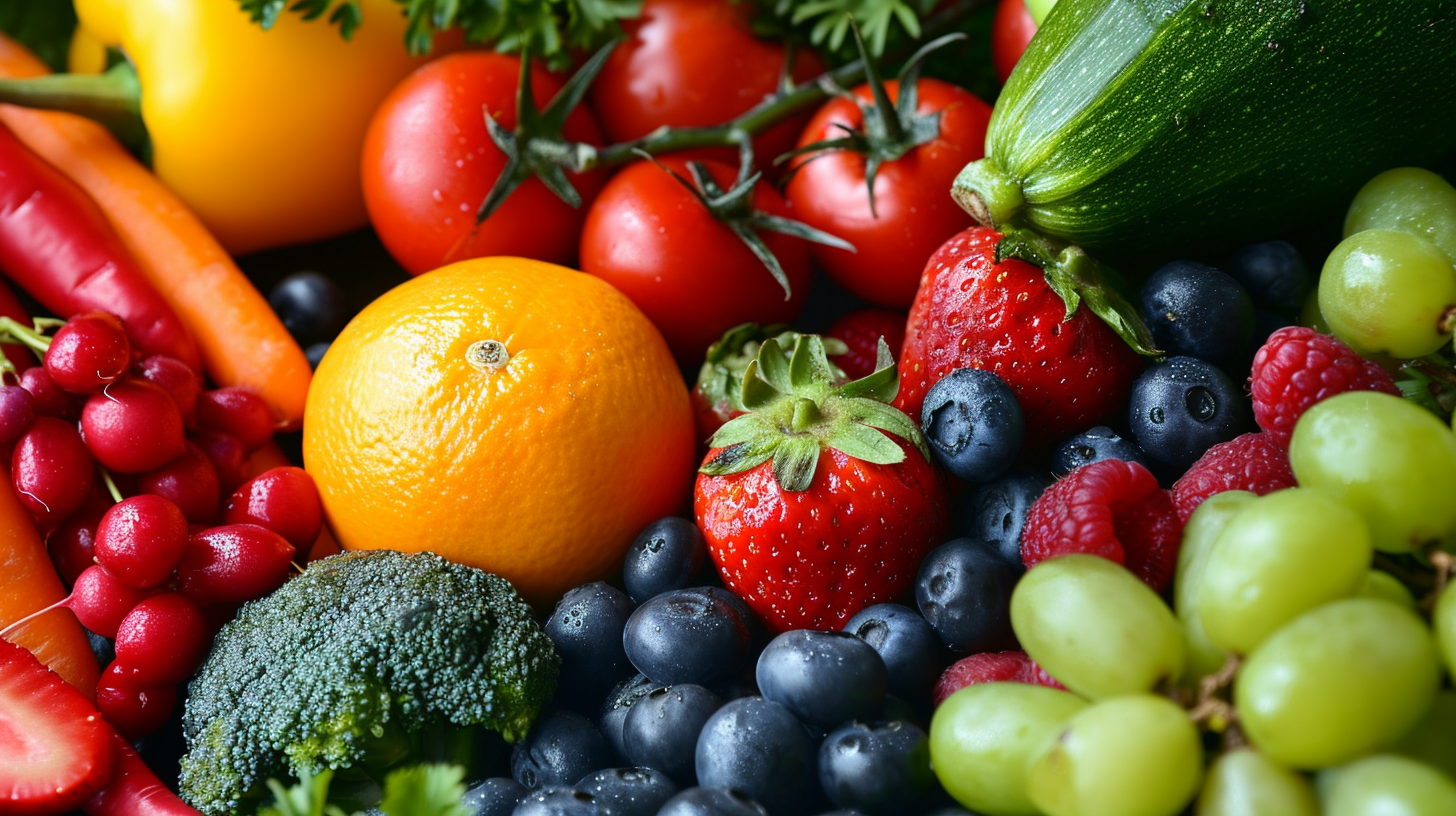The Dark Truth About Superfoods: Are They Really Worth the Hype?

The Dark Truth About Superfoods: Are They Really Worth the Hype?
You may find that superfoods don’t always match the hype surrounding them. While they’re marketed as exceptionally beneficial, scientific evidence is often lacking. It’s important to approach claims critically to separate facts from exaggerated marketing. Remember, superfoods are not superior to other whole foods and shouldn’t replace a balanced diet. They can offer specific benefits, but relying solely on them can lead to nutrient imbalances. You can make more educated dietary choices by staying informed and balancing superfoods with a variety of minimally processed foods. Keep in mind that the truth about superfoods goes beyond the buzz.
Overhyped Claims Vs. Nutritional Reality
In recent years, superfoods have been inundated with overhyped claims that eclipse their actual nutritional value. While superfoods like acai berries, quinoa, and chia seeds are often touted for their exceptional health benefits, it is important to approach these claims with a critical eye. Many superfoods are marketed as having miraculous effects on health, weight loss, and overall well-being, yet scientific evidence supporting these assertions is often lacking.
Consumer willingness to believe in the exaggerated benefits of superfoods plays a significant role in perpetuating these overhyped claims. The allure of quick fixes and the desire for easy solutions to complex health issues can lead individuals to embrace superfoods as a panacea. However, it is vital to recognize that a balanced diet consisting of a variety of nutrient-dense foods is the foundation of good health.
Regulatory bodies like the EU and FDA closely monitor superfood marketing to make sure that claims are backed by sound scientific evidence. Despite these efforts, the premium pricing of superfoods continues to attract consumers who are willing to pay more for products associated with health benefits. It is important for consumers to remain informed and discerning when evaluating the exaggerated claims surrounding superfoods to make well-informed dietary choices.
Marketing Tactics Vs. Scientific Evidence
When evaluating superfoods, it is important to carefully examine the marketing tactics employed in promoting their supposed health benefits. While some foods may be labeled as superfoods due to their nutrient density or antioxidant content, the actual scientific evidence supporting their superior health benefits is often limited. Marketing tactics play a significant role in elevating certain foods to superfood status, creating a perception of exceptional health benefits that may not always align with scientific reality.
Consumers should approach superfoods with a critical eye, considering the balance between marketing claims and scientific evidence. It’s vital to recognize that while certain foods may offer health benefits, they should not be viewed as a panacea for all health concerns. The emphasis on specific superfoods can sometimes detract from the broader picture of overall dietary patterns and the importance of consuming a variety of nutrient-rich foods.
When it comes to evaluating the health claims associated with superfoods, it is essential to look beyond the marketing hype and seek out reliable scientific sources. By being discerning and informed consumers, you can make more educated decisions about incorporating superfoods into your diet without falling prey to exaggerated marketing tactics. Remember that the true value of superfoods lies in their contribution to a well-rounded, diverse, and balanced diet that supports overall health and well-being.
Superfoods: Myth Vs. Truth
The distinction between the myth and truth surrounding superfoods remains a topic of ongoing scrutiny in the domain of nutrition and health. Superfoods, often touted as possessing exceptional health benefits, are actually a marketing term without a scientific definition. While some superfoods like blueberries, kale, and almonds are indeed nutrient-rich, they are not inherently superior to other whole foods. The term ‘superfood’ is frequently used in marketing, leading to inflated prices and a lack of regulatory oversight.
It is important to understand that incorporating superfoods into your diet can be beneficial, but fixating solely on these foods may overshadow the importance of a balanced diet. No single food, no matter how super it is claimed to be, can provide all the necessary nutrients for overall health. Therefore, it is vital to focus on a variety of whole, minimally processed foods to make sure you receive a diverse array of nutrients essential for overall well-being.
While there is scientific evidence supporting the health benefits of specific superfoods, it is important to approach these claims with a critical eye and avoid exaggerated statements. Remember, the key to a healthy lifestyle lies in maintaining a balanced diet rich in a variety of nutritious foods rather than solely relying on the allure of superfoods.

Balanced Diet Vs. Superfood Obsession
Focusing excessively on superfoods risks neglecting the importance of a varied diet rich in essential nutrients for overall well-being. While superfoods like acai berries and quinoa have their merits, fixating solely on these items may result in missing out on the diverse array of nutrients found in other whole foods. Here’s why it’s important to strike a balance between superfoods and a well-rounded diet:
Nutrient Imbalances: Relying solely on superfoods can create gaps in essential nutrients important for your body’s functions.
Variety Matters: A balanced diet encompasses a wide range of foods, including fruits, vegetables, whole grains, and lean proteins, not just the latest superfood trend.
Overlooking Essentials: An obsession with superfoods might lead to neglecting the benefits of dark leafy greens, colorful fruits, and other whole foods rich in vitamins and minerals.
Broad Nutrient Spectrum: Opting for a varied plate ensures you receive a broader spectrum of nutrients necessary for overall health and well-being.
Superfoods: A Closer Look
Exploring the nuances of superfoods reveals the intricate landscape of nutritional choices available to consumers today. While superfoods are often marketed as possessing exceptional health benefits, it’s important to approach these claims with a critical eye. The term ‘superfood’ lacks scientific definition and is frequently wielded as a marketing tool to promote certain nutrient-rich foods. While fruits and vegetables like blueberries and kale are definitely packed with essential vitamins and minerals, they are not inherently superior to other whole foods.
It is vital to recognize that the hype surrounding superfoods can sometimes overshadow the importance of a balanced diet. While incorporating superfoods into your meals can be advantageous, they should not be viewed as a cure-all for all nutritional needs. No single food, no matter how ‘super,’ can provide all the diverse nutrients required for excellent health. Instead, focus on consuming a variety of whole, minimally processed foods to make sure you are obtaining a broad spectrum of nutrients.
To navigate the world of superfoods effectively, it’s important to understand that while some may offer specific health benefits, they are just one piece of the puzzle in achieving a well-rounded and nutritious diet tailored to your individual needs. Be cautious of extravagant claims, and remember that a balanced approach to eating is key to long-term health and wellness.
Frequently Asked Questions
Are Superfoods Scientifically Proven?
Yes, superfoods are scientifically proven to be nutrient-rich, but they’re not a magical solution. Incorporate them for variety, but remember, no single food is a cure-all. Balance with a diverse diet for best health.
What Are the Cons of Superfood?
When considering superfoods, remember their potential drawbacks. Higher prices, exaggerated health claims, and lack of consistent standards may lead to confusion. While beneficial, focus on a varied diet for overall health.
What Is the #1 Superfood?
Blueberries are often hailed as the #1 superfood due to their high antioxidant content and potential health benefits. They are rich in vitamins C and K and fiber and may help improve memory and reduce heart disease risk.
What Is the Myth About Goji Berries?
Goji berries are often hyped as superfoods for their antioxidants and health perks. While some studies hint at benefits, solid evidence is lacking. Stay skeptical of bold claims, mix up your diet for real benefits.
Conclusion
You’ve now seen through the veil of superfood hype and discovered the reality behind these trendy foods. While they offer some benefits, remember that no single food holds the key to ultimate health. Prioritize focusing on a diverse, balanced diet to truly nourish your body. So, next time you hear a superfood claim to work miracles, take it with a grain of salt. After all, the truth is more complex than the exaggerated promises suggest.



